Home

Diet & Nutrition

Oats During Pregnancy: A Winning Combination for Both Mom and Baby
In this Article
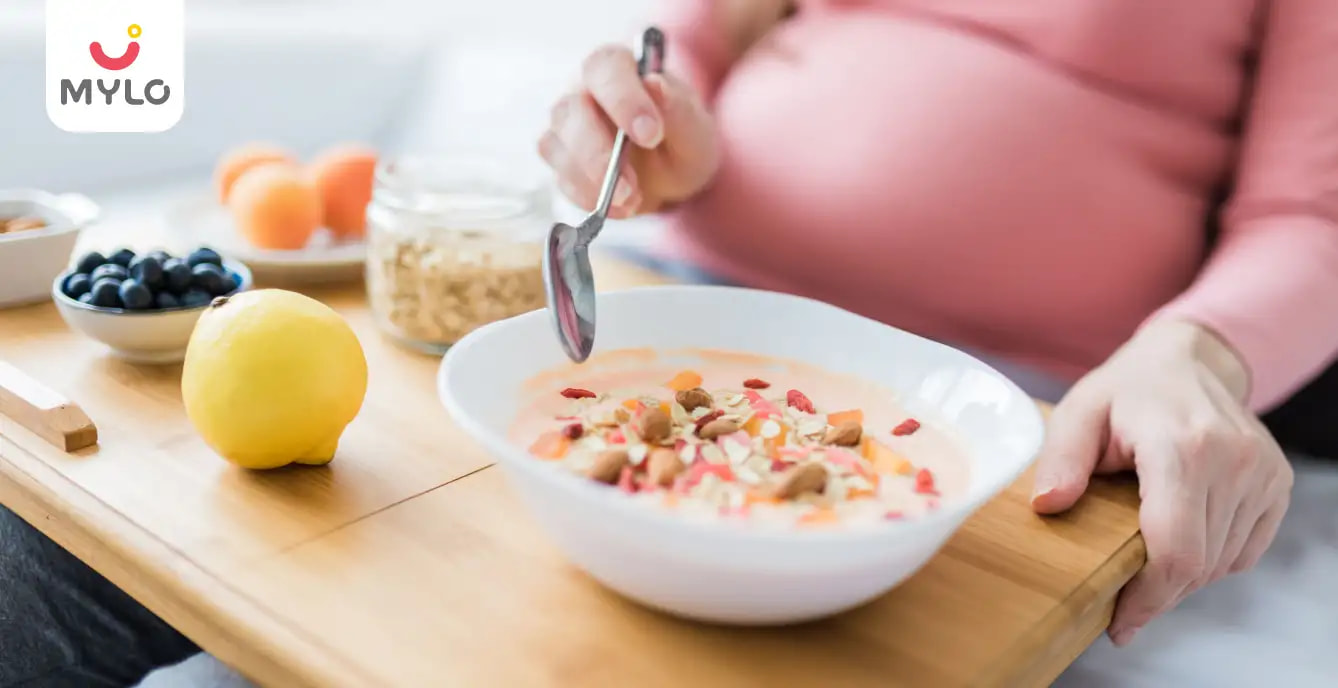
Diet & Nutrition
Oats During Pregnancy: A Winning Combination for Both Mom and Baby
Updated on 19 August 2023
Pregnancy is a time when every bite matters. As an expectant mother, you want to ensure that you are nourishing both yourself and your growing baby with the best possible foods. One such superfood that deserves a special place in your pantry is oats. These humble grains have gained quite a reputation for their numerous health benefits, and when it comes to oats during pregnancy, they become a winning combination for both mom and baby.
In this article, we will explore the incredible advantages of incorporating oats into your diet during pregnancy and how they can contribute to a healthy and thriving journey for you and your little one. So, grab a bowl of oatmeal and let's dive in!
Nutritional Value of Oats
Oats are a powerhouse of nutrition, making them an excellent choice for pregnant women. Packed with essential vitamins, minerals, and fiber, oats provide a wide range of benefits for both mom and baby.
A cup of oats contains approximately:
-
150 calories
-
6 grams of protein
-
4 grams of fiber
-
Iron
-
Magnesium
-
Vitamins A and B
The high fiber content in oats helps regulate digestion and prevents constipation, a common issue during pregnancy. Oats also contain complex carbohydrates, which provide a steady release of energy, keeping pregnant women energized throughout the day. Additionally, oats are a rich source of antioxidants and phytonutrients, which help boost the immune system and protect against diseases.
You may also like : 10 Benefits of Eating Dalia in Pregnancy
Can I Eat Oats During Pregnancy?
Absolutely! Oats are considered safe and highly beneficial during pregnancy, unless you have any specific allergies or medical conditions that prevent their consumption. In fact, oats are often recommended by healthcare professionals as a nutritious addition to a pregnant woman's diet. They offer a wide range of health benefits and can be easily incorporated into various dishes.
However, it is important to note that oats should be consumed in moderation, just like any other food. Excessive consumption of oats can lead to an increase in calorie intake, which may contribute to excessive weight gain during pregnancy. It is always best to consult with your healthcare provider or a registered dietitian to determine the appropriate portion size and frequency of oats in your pregnancy diet.
What are the Benefits of Oats for Pregnancy?
Let us understand some of the benefits you can derive from oats in pregnancy:
1. Promotes Digestive Health
The high fiber content in oats helps prevent constipation and promotes regular bowel movements, which can be a common concern during pregnancy.
2. Provides Essential Nutrients
Oats are an excellent source of essential nutrients like iron, magnesium, and B vitamins, which are crucial for the healthy development of the baby and the overall well-being of the mother.
3. Controls Blood Sugar Levels
Oats have a low glycemic index, meaning they release sugar into the bloodstream slowly, helping maintain stable blood sugar levels. This can be particularly beneficial for pregnant women with gestational diabetes.
4. Boosts Energy
The complex carbohydrates in oats provide a steady release of energy, keeping pregnant women feeling energized and satiated for longer periods of time.
5. Supports Immune System
Oats are rich in antioxidants and phytonutrients that help strengthen the immune system, protecting both the mother and the baby from infections and diseases.
6. Promotes Healthy Weight Gain
Oats are a nutritious, low-calorie food that can help prevent excessive weight gain during pregnancy. They provide a feeling of fullness, reducing the temptation to indulge in unhealthy snacks.
7. Reduces the Risk of Birth Defects
Oats contain important nutrients like folate, which play a crucial role in preventing birth defects and ensuring the healthy development of the baby's brain and spinal cord.
Precautions to Keep in Mind When Consuming Oats During Pregnancy
While oats are generally safe to consume during pregnancy, there are a few precautions to keep in mind:
1. Allergies and Intolerances
If you have any known allergies or intolerances to oats, it is best to avoid them during pregnancy. Consult with your healthcare provider for alternative options.
2. Processed Oats
Opt for whole oats or steel-cut oats rather than highly processed instant oats, as they retain more nutrients and have a lower glycemic index.
3. Food Safety
Always ensure that the oats you consume are properly stored and free from any contaminants. Avoid consuming oats that have passed their expiration date or have a strange odor.
4. Balanced Diet
While oats offer numerous health benefits, it is essential to maintain a balanced diet during pregnancy. Incorporate a variety of other nutritious foods to meet all your dietary needs.
5. Moderation
As with any food, moderation is key. Avoid excessive consumption of oats, as it can lead to an increase in calorie intake and potentially contribute to excessive weight gain.
How to Incorporate Oats in Pregnancy Diet?
Incorporating oats into your pregnancy diet is simple and versatile. Here are a few ideas:
1. Oatmeal
Start your day with a warm bowl of oatmeal topped with fresh fruits and nuts. This hearty breakfast will provide you with a nutritious start and keep you feeling full throughout the morning.
2. Smoothies
Add a spoonful of oat bran or rolled oats to your favorite smoothie recipe. This will not only add a nutritional boost but also create a creamy texture.
3. Baking
Use oat flour as a substitute for regular flour when baking muffins, cookies, or bread. This will increase the fiber content and add a subtly nutty flavor to your baked goods.
5. Granola
Make your own homemade granola using oats, nuts, and dried fruits. Enjoy it as a snack or sprinkle it over yogurt for a delicious and nutritious treat.
6. Soups and Stews
Add oats to soups and stews to thicken the consistency and add a nutritional punch. Oats work particularly well in vegetable-based soups and chili.
You may also like : Chocolate in Pregnancy Is it Safe or Not
FAQ’s
1. Is it okay to eat oats during pregnancy 3rd trimester?
Yes, it is perfectly safe to consume oats during the third trimester of pregnancy. In fact, the nutritional benefits of oats remain the same throughout all stages of pregnancy. Oats provide a good source of energy, fiber, and essential nutrients that can support the growth and development of the baby.
2. Can we eat oats with milk in pregnancy?
Yes, it is safe to eat oats with milk during pregnancy. In fact, combining oats with milk can enhance the nutritional value of your meal. Milk provides additional protein, calcium, and vitamin D, which are essential for the healthy development of the baby's bones and teeth.
The Bottomline
Oats during pregnancy is a winning combination for both mom and baby. They are nutritious and versatile and offer a wide range of health benefits, including improved digestive health, essential nutrients for both mom and baby, controlled blood sugar levels, boosted energy, strengthened immune system, healthy weight gain, and reduced risk of birth defects.
References
1. Barati Z, Iravani M, Karandish M, Haghighizadeh MH, Masihi S. (2021). The effect of oat bran consumption on gestational diabetes: a randomized controlled clinical trial.
2. Hillesund ER, Øverby NC, Engel SM, Klungsøyr K, Harmon QE, Haugen M, Bere E. (2014). Associations of adherence to the New Nordic Diet with risk of preeclampsia and preterm delivery in the Norwegian Mother and Child Cohort Study (MoBa). Eur J Epidemiol.



Written by
Anandita Sharma
Drawing on more than a decade of expertise in administration, Anandita Sharma currently serves as a content operations e
Read MoreGet baby's diet chart, and growth tips

Related Articles
Related Questions
Influenza and boostrix injection kisiko laga hai kya 8 month pregnancy me and q lagta hai ye plz reply me

Hai.... My last period was in feb 24. I tested in 40 th day morning 3:30 .. That is faint line .. I conculed mylo thz app also.... And I asked tha dr wait for 3 to 5 days ... Im also waiting ... Then I test today 4:15 test is sooooo faint ... And I feel in ma body no pregnancy symptoms. What can I do .

Baby kicks KB Marta hai Plz tell mi

PCOD kya hota hai

How to detect pcos

Related Topics
RECENTLY PUBLISHED ARTICLES
our most recent articles
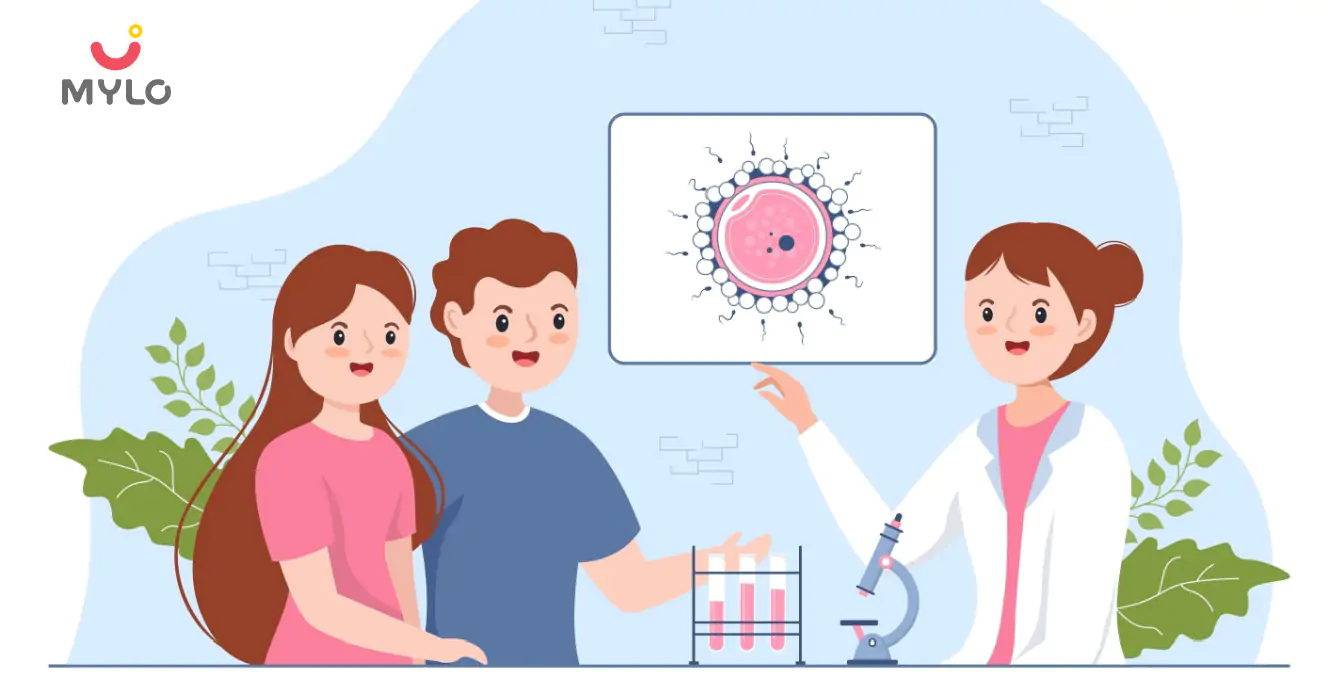
In Vitro Fertilization (IVF)
Types of IVF, Their Benefits and Side Effects Everything You Need to Know..
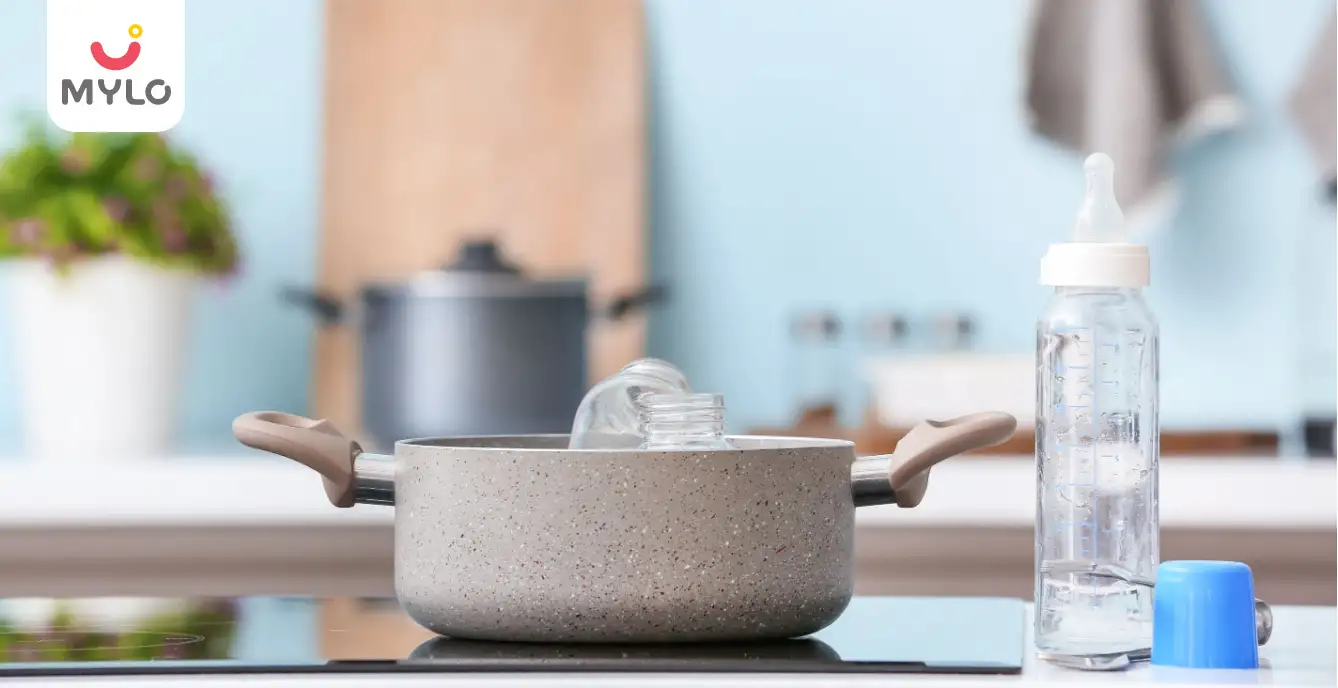
Feeding from a Bottle
How to Sterilize Baby Bottles: The Ultimate Step-by-Step Tutorial
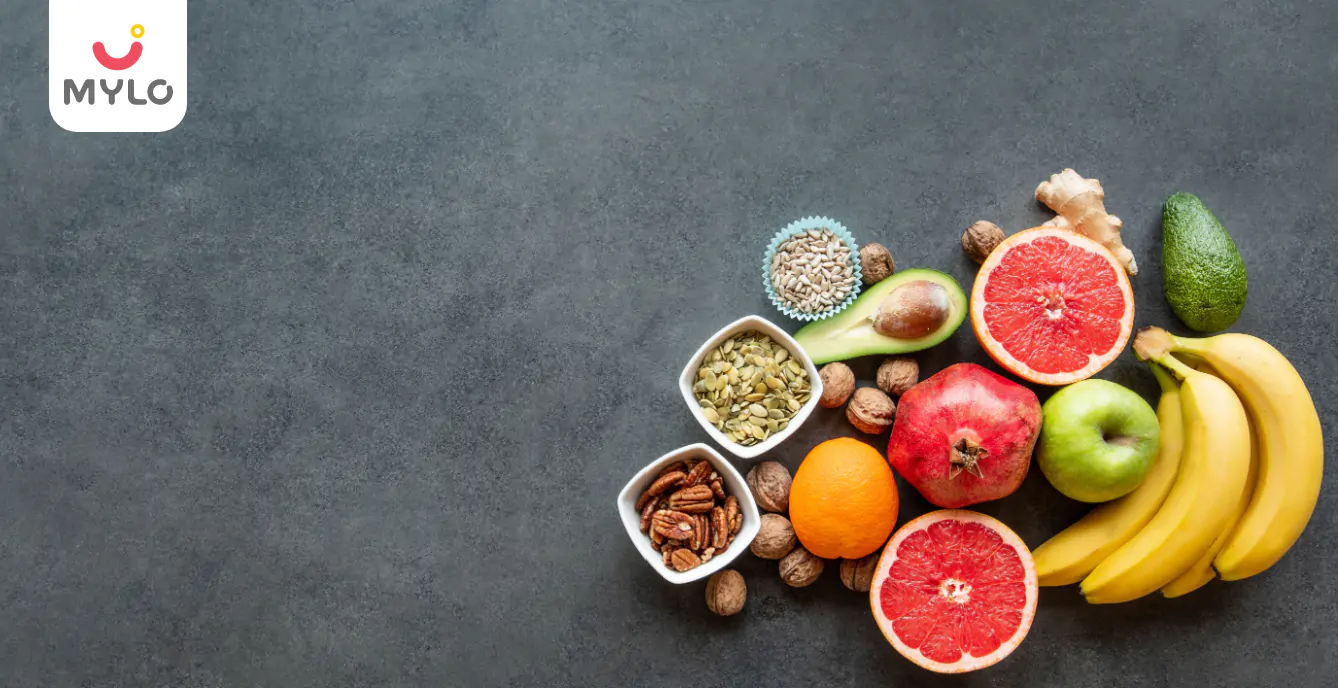
Diet & Nutrition
What to eat when trying to conceive

White Discharge
White Discharge After IUI: Is It Normal & When to See a Doctor

Diet & Exercises Your Wife Can Follow During Pregnancy
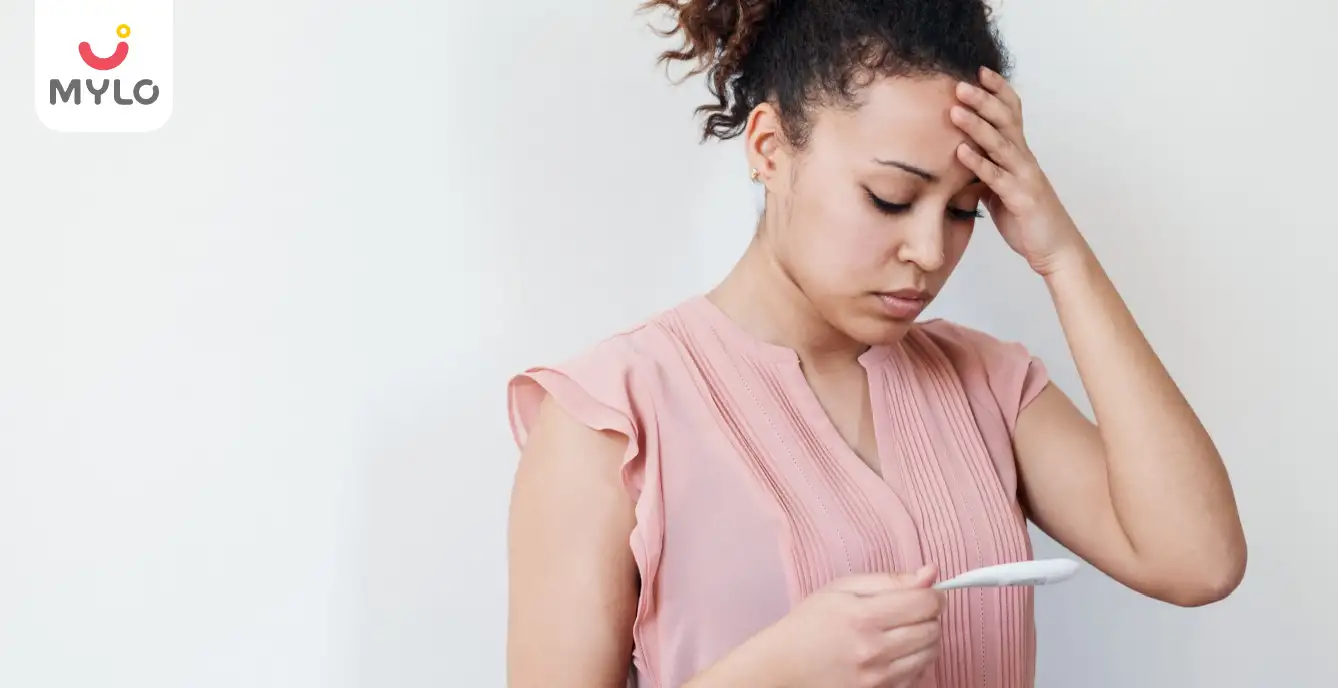
Can a diet plan help deal with infertility in women and boost the chances of conception?
- How to Sterilize Breast Pump: A Comprehensive Guide for New Moms
- Bronchiectasis Meaning in Hindi | ब्रोन्किइक्टेसिस क्या होता है?
- The Ultimate Guide to Teej 2023: Celebrations, Traditions, and Dates
- Should I Pee After Sex if Trying to Get Pregnant? And 5 Other FAQs
- Menorrhagia: A Guide to Understanding Heavy Period Bleeding (Part 1)
- Indigestion and Heartburn During Pregnancy
- Understanding Follicular Study: A Comprehensive Guide to Female Fertility
- Maternity Fashion: How to Dress in Style in Each Trimester of Your Pregnancy?
- Oligomenorrhea: What Every Woman Needs to Know About Irregular Periods
- Can a Woman with Thyroid Problems Get Pregnant: Conceiving Against the Odds
- Adenomyosis Vs Endometriosis: How to Spot the Symptoms and Seek Early Intervention
- Fertility Test for Men and Women: What to Expect and Next Steps
- Reason for Irregular Periods After Marriage: A Comprehensive Guide
- How Soon Can You Get Pregnant After Stopping the Pill?


AWARDS AND RECOGNITION

Mylo wins Forbes D2C Disruptor award

Mylo wins The Economic Times Promising Brands 2022
AS SEEN IN

- Mylo Care: Effective and science-backed personal care and wellness solutions for a joyful you.
- Mylo Baby: Science-backed, gentle and effective personal care & hygiene range for your little one.
- Mylo Community: Trusted and empathetic community of 10mn+ parents and experts.
Product Categories
baby carrier | baby soap | baby wipes | stretch marks cream | baby cream | baby shampoo | baby massage oil | baby hair oil | stretch marks oil | baby body wash | baby powder | baby lotion | diaper rash cream | newborn diapers | teether | baby kajal | baby diapers | cloth diapers |




